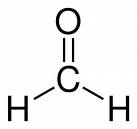 The National Cancer Institute, a division of the National Institutes of Health, has released a report detailing the increased risk of blood and lymphatic cancers in workers employed at plants using or producing formaldehyde.
The National Cancer Institute, a division of the National Institutes of Health, has released a report detailing the increased risk of blood and lymphatic cancers in workers employed at plants using or producing formaldehyde.
With an average follow-up of 40 years, the report stated a “statistically significant association between death from all blood an lymphatic cancers combined and peak formaldehyde exposure.” The report indicated a mortality risk increase of 37% for workers with the highest peak exposures.
“The overall patterns of risk seen in this extended follow-up of industrial workers, while not definitive, are consistent with a causal association between formaldehyde exposure and cancers of the blood and lymphatic system and warrant continued concern. Further studies are needed to evaluate risks of these cancers in other formaldehyde-exposed populations and to assess possible biological mechanisms,” said lead author of the report, Laura E. Beane Freeman, Ph.D., NCI Division of Cancer Epidemiology and Genetics.
 Found throughout industry as a disinfectant, preservative, and by-product, the International Agency for Research on Cancer has classified formaldehyde as a carcinogen. OSHA has estimated that approximately 2.1 million workers in the United States are exposed to the chemical.
Found throughout industry as a disinfectant, preservative, and by-product, the International Agency for Research on Cancer has classified formaldehyde as a carcinogen. OSHA has estimated that approximately 2.1 million workers in the United States are exposed to the chemical.
Read the full report, HERE
